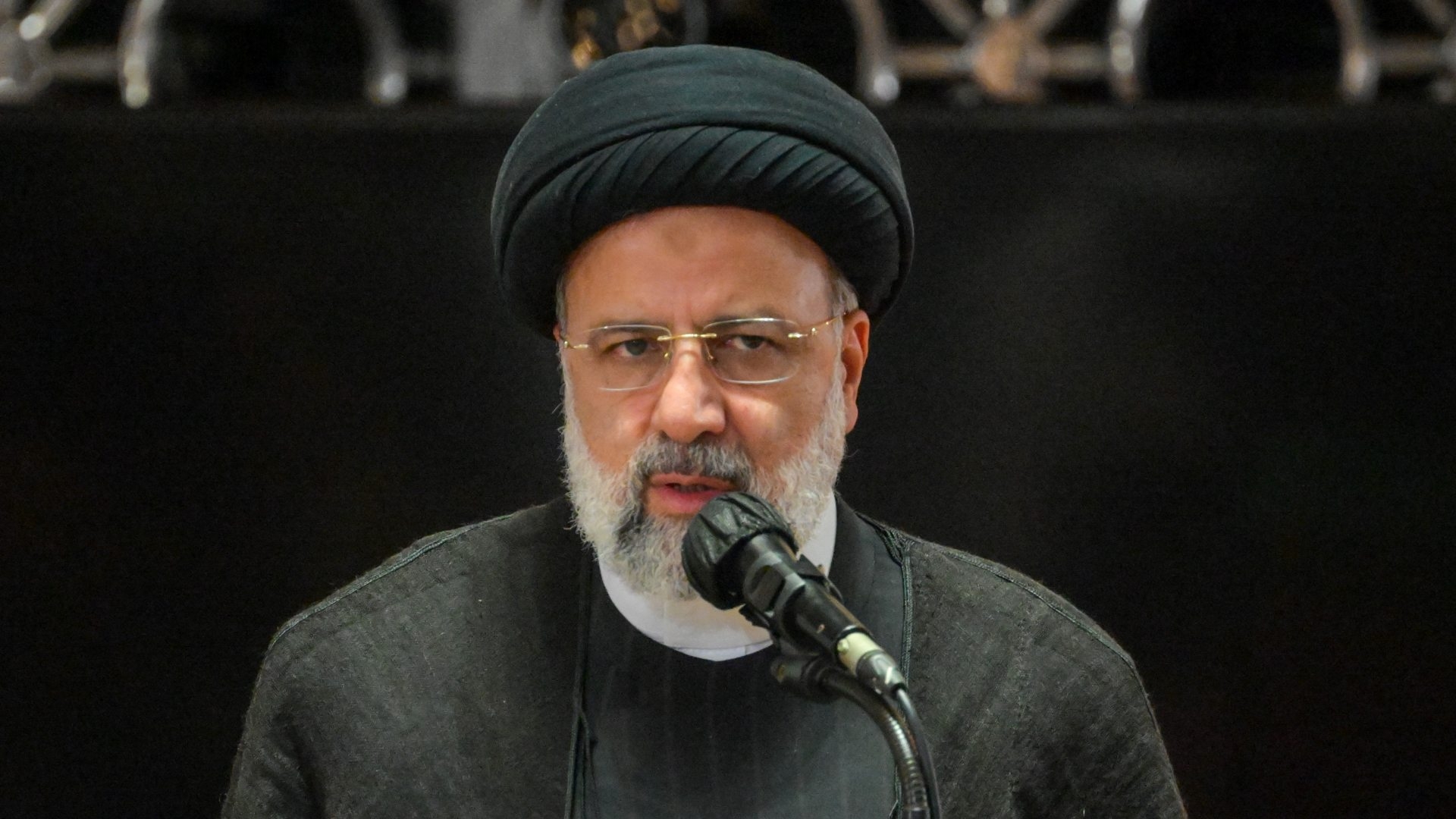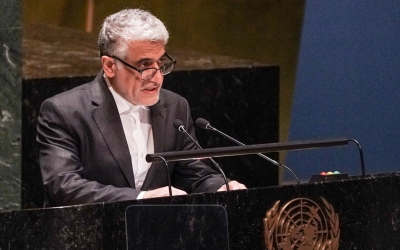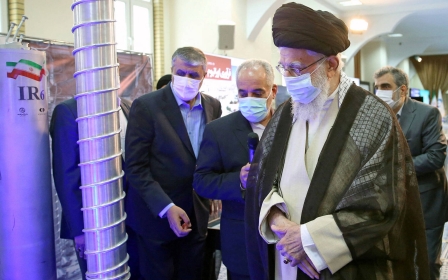Iranian president's visit to Latin America aims to counter western 'domination'

Iranian President Ebrahim Raisi has set off on a tour of Latin America this week where he plans to visit Venezuela, Nicaragua and Cuba, in a visit he described as standing against the "domination system" of western countries.
The visit began with a meeting in Venezuela with its president, Nicolas Maduro. Raisi is travelling with his ministers of foreign affairs, petroleum, defence, and health.
“The common position of Iran and the three countries is to stand against the domination system and confront unilateralism,” Raisi said before his trip, as reported by Iranian news outlets.
“In addition to friendly political ties with Venezuela, Nicaragua and Cuba, Iran has also had good cooperation with these countries in the field of energy, industry, agriculture, science and technology, and medicine and treatment,” said Raisi.
The trip marks Raisi's 13th visit abroad since taking the presidential office. Iran is one of Venezuela's main allies, alongside Russia, China, Cuba, and Turkey. And like Venezuela, Nicaragua, and Cuba, Tehran is subject to tough US sanctions.
Stay informed with MEE's newsletters
Sign up to get the latest alerts, insights and analysis, starting with Turkey Unpacked
Last month, a Cuban delegation visited Iran and signed more than a dozen agreements spanning cooperation in healthcare, trade, agriculture, and sports.
Tehran and Havana have worked together on a number of projects, including a joint programme to produce a vaccine against the Covid-19 virus.
“The US government thinks only about its own interests and does not care about others. We have paid a heavy price for our political independence and we will safeguard it,” Cuban President Miguel Diaz-Canel said during the meeting last month, according to Iran's Ministry of Foreign Affairs.
Iran's ties with Latin America
The closest ties Iran has in South America are with Venezuela.
Last year, Maduro travelled to Iran and signed a 20-year deal regarding the two countries' energy and financial sectors, and also pledged to work together on defence-related projects.
Venezuela and Iran are two major oil-producing countries and are both members of the oil cartel Opec, the former of which is home to the world's largest proven reserves of crude oil. However, US sanctions have crippled their economies and stymied much of their ability to export crude.
Isolated by the global financial system, they have engaged in their own oil deals. In 2021, they struck an agreement to swap Iranian condensate - an extremely light oil - for Venezuelan heavy crude.
In 2022, the countries also established a deal to operate direct flights between Caracas and Tehran "in order to promote tourism and the union between our countries", with Maduro saying that "Venezuela is open to receive tourists from Iran".
Iran's ties with Nicaragua originate in the 1980s during the Iran-Contra affair, when then-US President Ronald Reagan's administration secretly facilitated the sale of arms to Iran - which was under an arms embargo - in order to fund right-wing rebels in Nicaragua attempting to overthrow the Sandinista government led by Daniel Ortega.
The scandal took place at a time of US interventionism in Latin America against leftist groups, and Iran developed ties with Ortega's government.
Former Iranian President Mahmoud Ahmadinejad visited Nicaragua and met with Ortega in 2007, and the two leaders said they shared common interests and enemies.
Saudi-Iran rapprochement
Raisi's visit to Latin America and meeting with Maduro also comes a week after the Venezuelan leader himself travelled to Saudi Arabia, one of Tehran's adversaries and a close ally of the US.
Maduro's meeting with Saudi Crown Prince Mohammed bin Salman took place a day before US Secretary of State Antony Blinken arrived in Riyadh for a three-day visit.
The kingdom has in recent years worked to pursue its own national interests at the expense of aligning with US positions, as Riyadh's ties with Washington have strained.
In March, Saudi Arabia and Iran ended seven years of severed relations after a deal that was brokered by China, another adversary of the US.
In another sign of pushing out of alignment with Washington, Saudi Arabia welcomed Syrian President Bashar al-Assad in his first trip to the kingdom since the two countries severed ties in 2012.
Assad was suspended from the Arab League after he launched a violent crackdown on street protests by government forces in the wake of the pro-democracy uprisings across the Arab-speaking world.
The crackdown led to a devastating civil war that killed more than a half million Syrians and displaced millions more.
Middle East Eye delivers independent and unrivalled coverage and analysis of the Middle East, North Africa and beyond. To learn more about republishing this content and the associated fees, please fill out this form. More about MEE can be found here.





